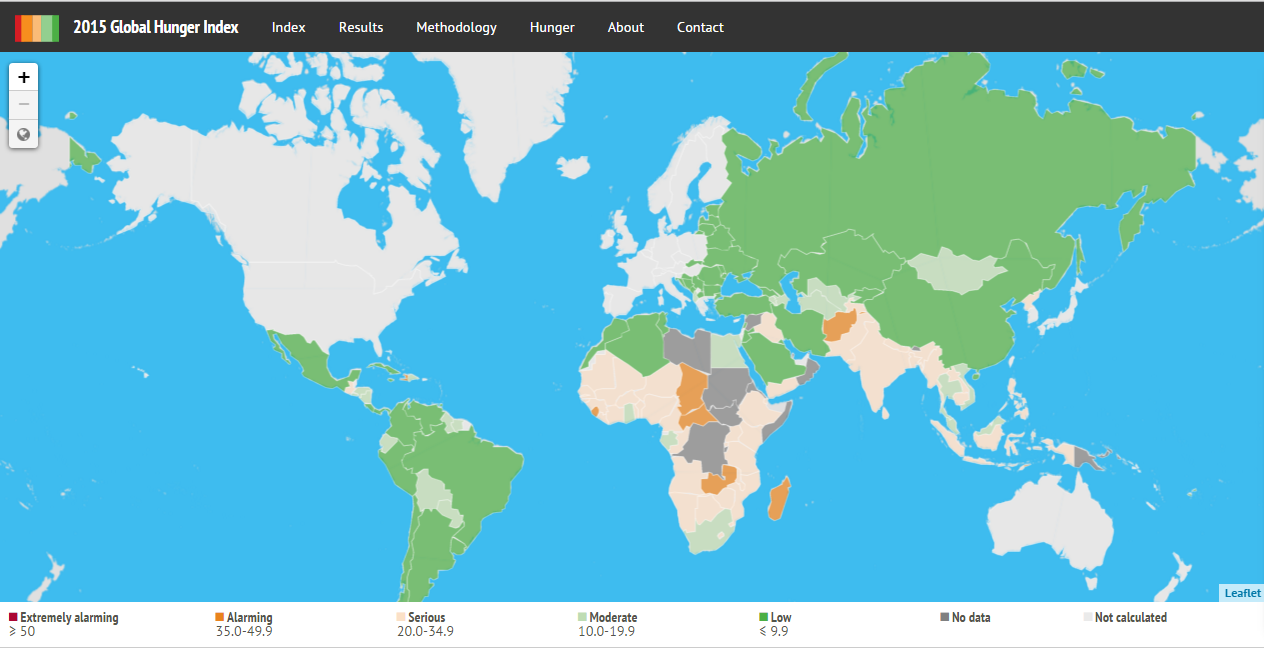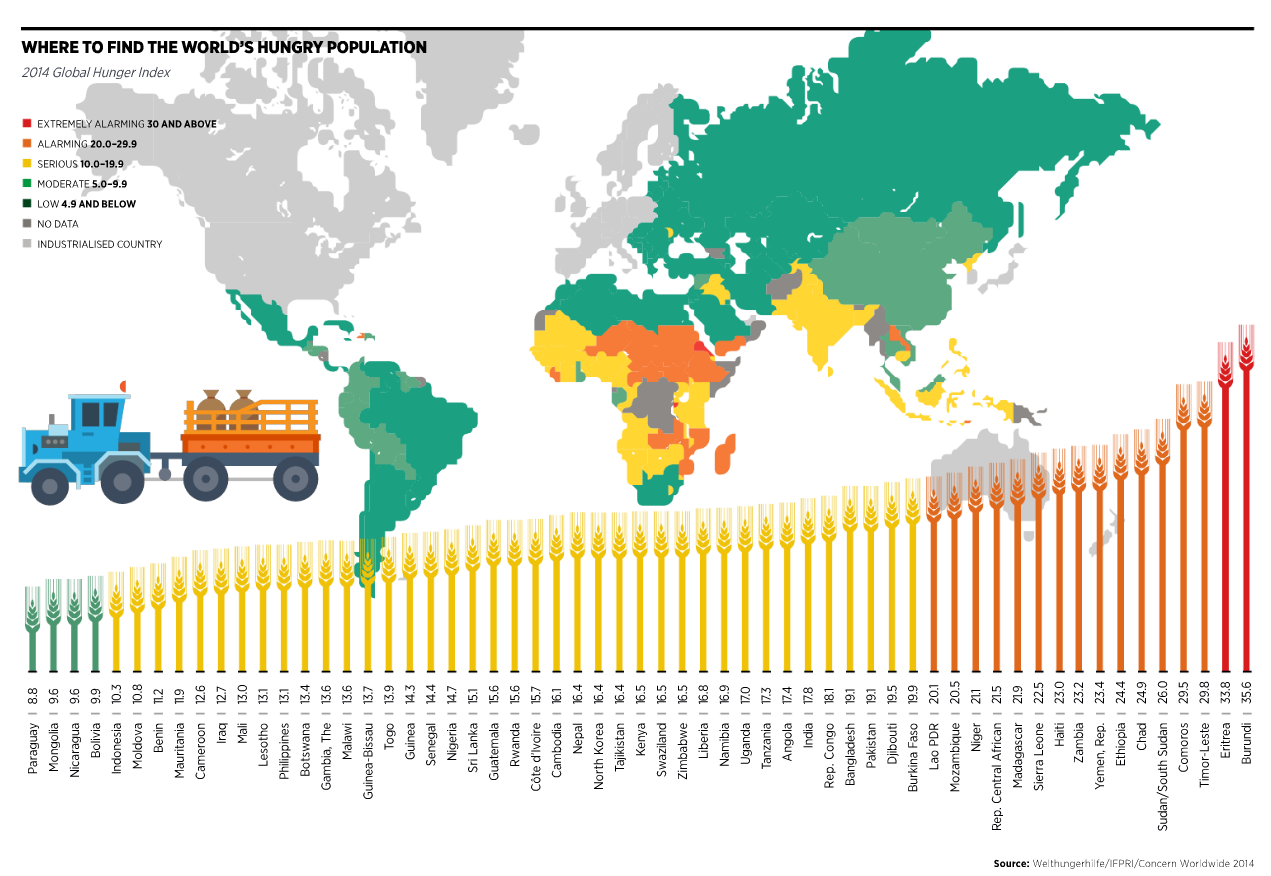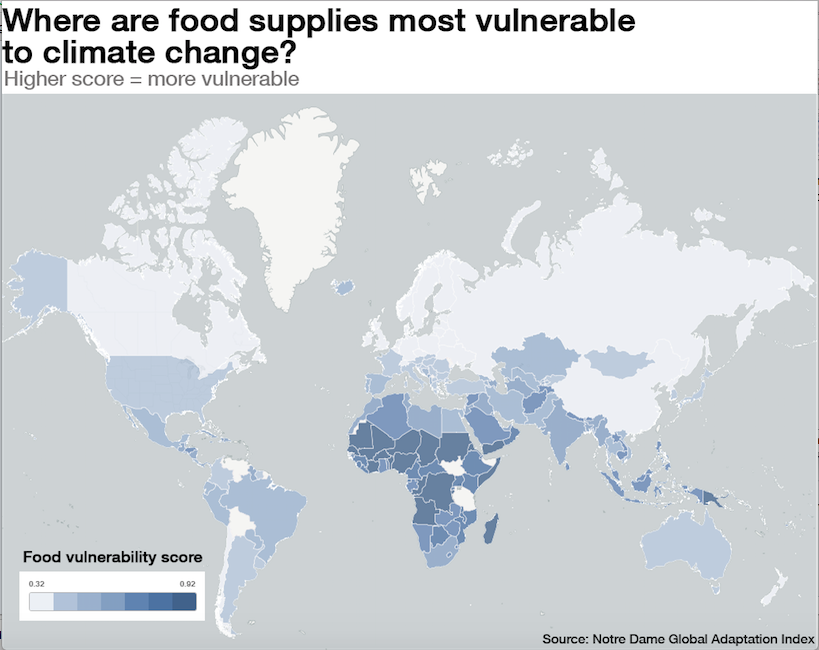
Graphic images of starvation in the besieged Syrian town of Madaya have prompted an outcry around the world. U.N. officials say residents of the town are starving to death due to a blockade that has prevented aid from reaching the town since October 2015.
The Syrian government has agreed to allow aid convoys to enter the area and the U.N. World Food Programme is preparing to deliver humanitarian aid to residents in the coming days. The U.N. estimates 400,000 Syrians are trapped in besieged locations without access to medical aid and vital resources.
With more than 795 million undernourished people in the world today, hunger is a global problem, and malnutrition and hunger is the number one risk to health worldwide. The U.N. mission to end hunger has seen promising results, with 219 million fewer hungry people in 2015 than in 1990-92 and a majority (72 out of 129) of countries achieving the Millennium Development Goal target of halving undernourishment by 2015.
Yet many countries still experience high levels of hunger, as illustrated in this map from the 2015 Global Hunger Index.
The countries most at risk from hunger are often those experiencing conflict, political instability, climate related crises, or all of the above. The U.N.’s Food & Agriculture Organization says, “extreme weather events, natural disasters, political instability and civil strife have all impeded progress.” One in five people suffering from undernourishment live in crisis environments with weak governments and an increased vulnerability to death and disease.
The 2015 Global Hunger Index focuses on the connection between conflict and hunger. Alex de Waal, contributor to the index, says: “it is clear that conflict is the main cause of persistent severe hunger”. Indeed, many of the countries featured high in the index are countries which are currently experiencing, or recently experienced, conflict. The top two countries with alarming levels of hunger are the Central African Republic and Chad, where people have been living with instability for many years.
Although no country is ranked as ‘extremely alarming’ it should be noted that data was not available for, amongst others, Burundi, Congo, Eritrea, Somalia, South Sudan and Sudan, countries which have been placed highly in the ranking in previous years, as shown in this chart from Raconteur that looks at the 2014 Global Hunger Index. Many of these countries are recent conflict zones.
Meanwhile, climate change and weather-related disasters have increased the vulnerability of food supplies across the world, resulting in rising levels of hunger. Millions of lives are at risk due to climate related disasters and, as the World Food Programme notes, it is those living in the developing world who are most vulnerable.
The above map shows where food supplies are most at risk from climate change. The most vulnerable nations – mostly in Africa and Southeast Asia – are also those currently experiencing the highest levels of hunger.
This article was first published in the WEF Agenda Blog on Jan. 8, 2016.
__________
Emma Luxton is a Junior Content Producer at Formative Content.
__________
Emma Luxton is a Junior Content Producer at Formative Content.


